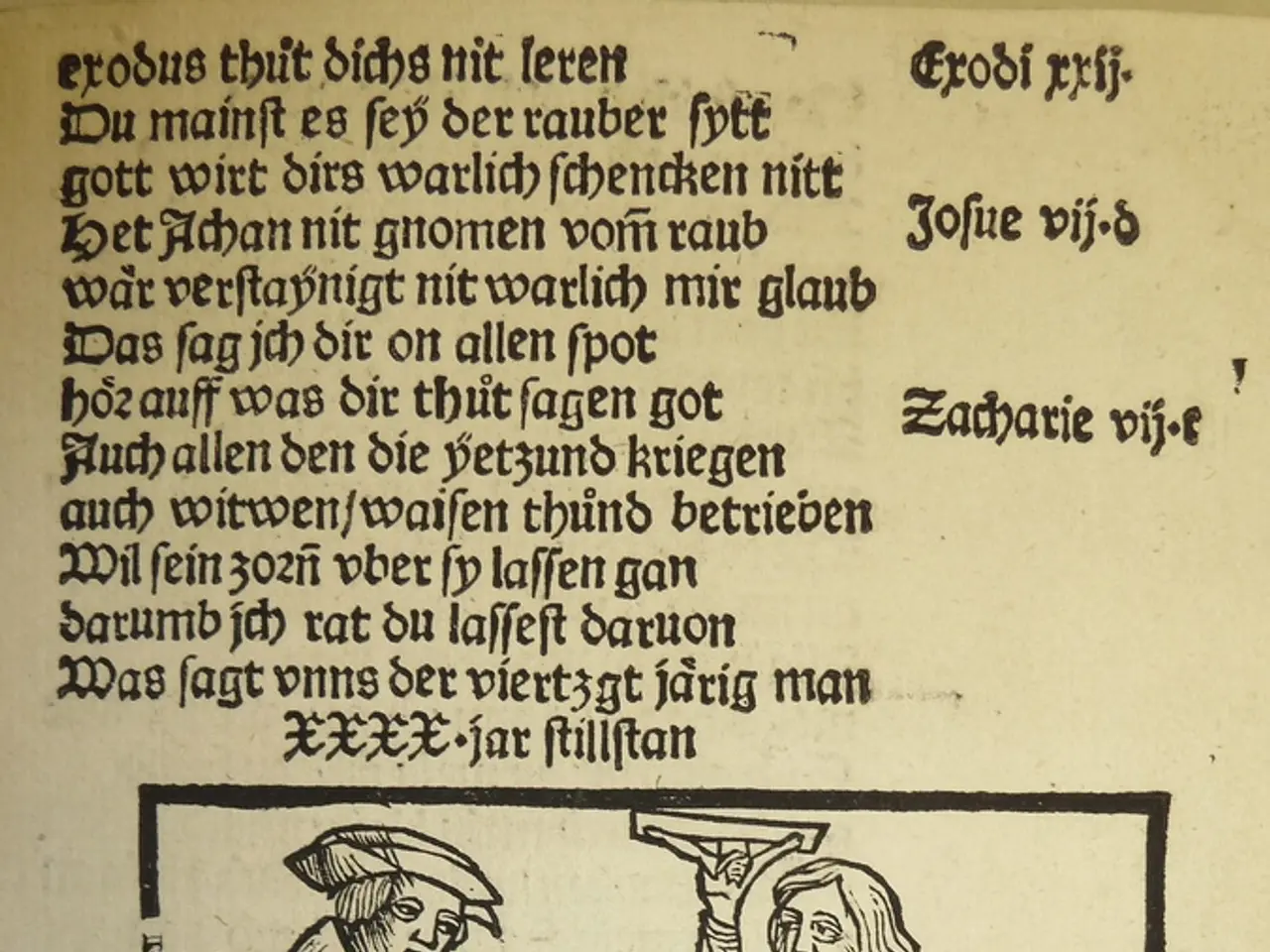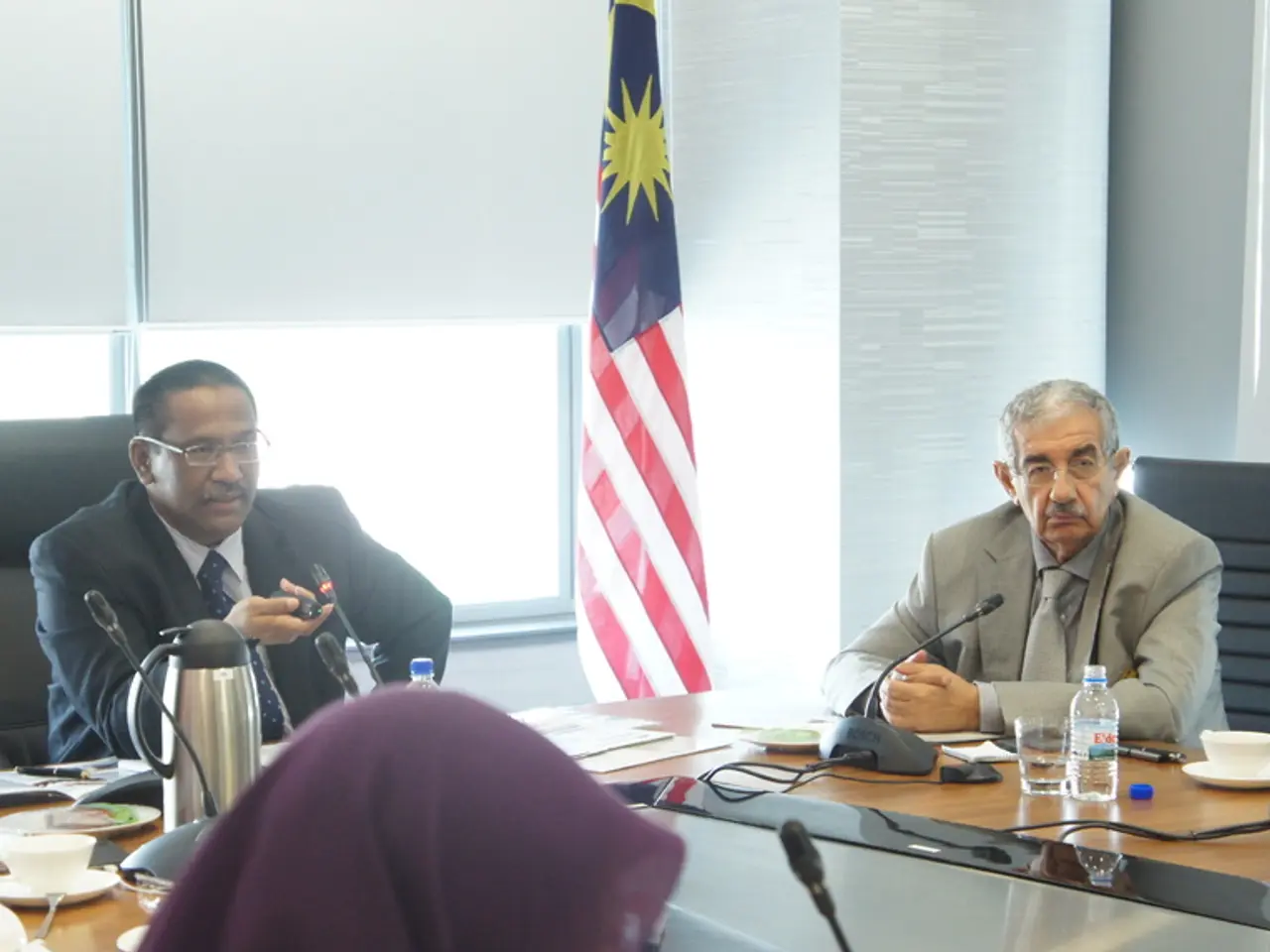Romanian Magistracy Council exhibits strong opposition to Prime Minister's proposal restricting magistrates' prerogatives
In a move that has sparked controversy, Romanian Prime Minister Ilie Bolojan has proposed amendments to the service pensions of magistrates. The proposal, which has faced heavy criticism and opposition, aims to raise the retirement age for magistrates to 65 and cap their pensions at 70% of their last net salary.
The Romanian Superior Council of Magistracy (CSM) has expressed fierce resistance to the reform, describing it as a threat to their salary and pension privileges. The CSM, which is responsible for the oversight of the Romanian judiciary, has previously warned PM Bolojan that he does not have the legal capacity to initiate such a process.
The CSM's stance against the reform is considered strong and unusual, as the proposal might pass the Constitutional Court's scrutiny, which in previous attempts had blocked similar reforms. Legal experts suggest that the proposal has a chance to withstand constitutional review as a legitimate public policy reform, depending on its implementation and transitional provisions.
The draft published by the government includes a transition period until January 2029, during which the retirement age will rise from the current 47 years and 8 months to 65 years. The minimum work period for magistrates would be increased from 25 to 35 years. The new formula for calculating magistrates' pensions, as proposed by the PM, would be 55% of the average gross income, excluding one-off bonuses in the past five years, but no more than 70% of the most recent net income.
In some cases, these pensions exceed the wages earned by the same magistrates when in office. Curtailing the budgetary impact of the system is a target Romania committed to meeting under the Resilience Facility. However, the document launched by the government is not a formal draft bill since it was not initiated by ministries, including the Ministry of Justice.
Minister of Justice Radu Marinescu has denied any paternity or involvement in the project's design. The PM's proposal does not appear to have been initiated by the Ministry of Justice, as stated in earlier reports. Despite the CSM's opposition, the Prime Minister has initiated consultations on the proposal outside of legal procedures.
The CSM is engaged in a political and legal dispute over the reform, with the Constitutional Court expected to have the final say on its constitutionality. The CSM has concluded that there is nothing to discuss regarding the prime minister's invitation to debates and has refused to give its opinion on the proposal due to the illegal procedure aimed at adopting a normative act regulating the judiciary system without genuine consultation of the judiciary authorities.
The controversy surrounding the pension reform for magistrates is likely to continue, with the CSM and some political actors within the governing coalition opposing the proposal, while the government argues that it is necessary to meet budgetary targets. The outcome of the Constitutional Court's review will be closely watched as it could set a precedent for future reforms in the Romanian judiciary.
- The ongoing controversy over the proposed pension reform for magistrates in Romania, initiated by Prime Minister Ilie Bolojan, has escalated into a political and legal dispute between the government and the Romanian Superior Council of Magistracy (CSM).
- The CSM's position against the reform, which aims to alter policy-and-legislation governing magistrate pensions, is based on their belief that the process is illegal and a threat to their salary and pension privileges, a stance that questions the politics surrounding the issue. This dispute, along with the potential impact on the general-news landscape, will wait for a decision from the Constitutional Court regarding its constitutionality.







